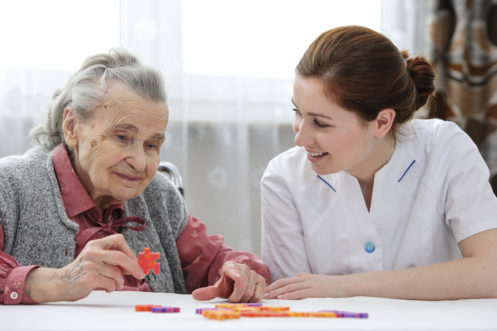There are many home care companies in the San Diego area. You need to pick one, but what should you look for? Not all licensed San Diego home care companies are equal. Owning and operating a home care company became a state licensed category a mere two years ago. Licensing requires all companies to carry insurance, ensure caregivers complete background checks, and act as the caregiver employer. All licensed San Diego home care organizations are expected to offer these basic services. But, this is where similarities end. Each company has a unique vibe. And, policies around hiring, customer service, and follow-up vary and mean distinctly different client experiences. Below are the questions you should ask any home care you are considering.
Are you a licensed San Diego home care company?
This may sound like a simple question but there are several different types of companies. Not all agencies currently offering services in San Diego county are licensed or in good standing. You can check the license status of a License San Diego home care company by checking the license status online. If the company is not current on licensing or has infractions, the site will show that information.
Some companies operate under a different model called a domestic referral agency. These organizations are not licensed home care agencies. There are a few key differences between a Licensed San Diego home care organizations and domestic referral agencies:
Insurance – Licensed companies carry workman’s comp and contribute to unemployment insurance. They also take out bonds. Domestic referral agencies do not provide insurance for in home caregivers.
Employment – Licensed San Diego home care agencies officially employ caregivers. This means licensed agencies manage all employment aspects. Domestic referral agencies simply facilitate the connection between caregiver and prospective client.
Ongoing Management – great licensed home care agencies offer ongoing client management and remain important in the continued relationship between caregiver and client. Domestic referral agencies cannot have continued contact with the caregiver after placement. They may answer client questions but do not offer continued client management.
Domestic referral agencies offer do-it-yourself solutions for home care. But, if you desire comprehensive legal, employment, and insurance protection, you want the support of a licensed San Diego home care organization.
You can find more resources and information about San Diego home care here.
What Ongoing Support Do You Offer?
You don’t want a set-it-and-forget-it home care organization. Not all agencies are created equal. Great agencies offer field support and training. The team at Green Tree Home Care has a dedicated field manager who does monthly or bimonthly quality visits. The benefit of a field manager is the global perspective. Because our field manager develops long term relationships with clients she can spot changes and offer support. This is especially important for family members who are not local. We have helped clients get new refrigerators, locate a dog groomer, and flag emerging urinary tract infections. Great licensed San Diego home care agencies are partners in the care landscape.
How Do You Find Your Caregivers and How Do You Know They are Good?
Essentially all home care organizations find caregivers from the same sources: online, schools, networks, and word-of-mouth. Great companies create and enforce systems that ensure the caregivers they hire are the best. Ask what qualities the company looks for in caregivers that join the team. The representative you speak with should have a clear idea of the values the company looks to attract. Some companies hire anyone who meets the minimum requirements and then see who sticks with the organization. Others – like Green Tree Home Care – believe in only bringing on people who have genuine compassion, experience, and dependability.
What Do You Charge For?
Most companies don’t charge for in home assessments. But a few may try to charge for the initial meeting. Most companies charge for mileage if the caregiver uses his or her own car.
Home care organizations observe wage and hour laws. They have to pay overtime for longer shifts. Some companies charge time and a half when the hours go over 8 or 9 while other don’t. Make sure you understand how the perspective company charges and how this might affect you now and in the future.
What Happens if I Need Help After Hours or Weekends?
Nothing is worse than sitting on call center hold on a Sunday morning when you need to quickly cancel a caregiving shift and take your loved one to urgent care. Some companies use call centers to handle after hours and weekend calls while others keep all call handling in house. Our team at Green Tree Home Care handles all phone calls in house. We believe it is important that someone who knows your loved one answer questions or support emergency situations no matter the time or day. Home care is pretty quiet until it isn’t. Great home care agencies realize accidents, emergencies, and changes can happen any time and want to provide support any time.
What Does Your Company Do to Retain Great Caregivers?
You want to make sure the company you choose has programs designed to keep caregivers happy and onboard. You don’t want your favorite caregiver jumping ship for better pay or opportunity because the company hawks the bottom line. Great companies are generous with PTO and flexibility. A very small handful – like Green Tree Home Care offer medical insurance for caregivers.
Wrap Up
You have choices when it comes to licensed San Diego home care companies. It is important to ask questions before you agree to services with any company. Make sure their operations are designed to care for you and your loved one above all else. Any company can do the minimums but you want to look for organizations that go the extra mile.









